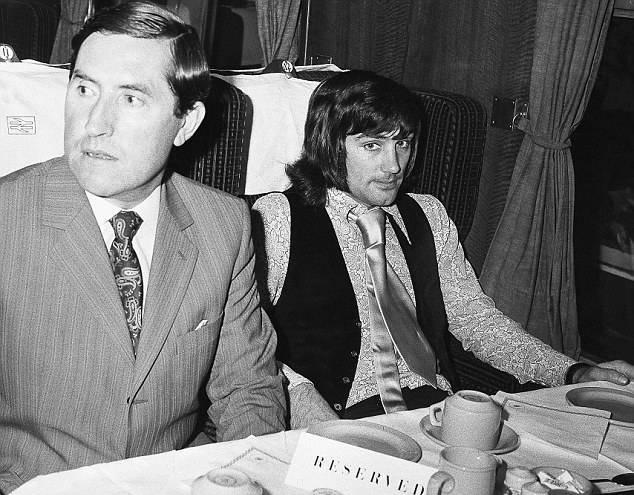According to foreign media reports, former Manchester United coach Frank O'Farrell died at the age of 94.
As a player, O'Farrell spent most of his time at West Ham United, retiring as a coach. He was Manager of Manchester United from June 1971 to December 1972, where he coached 81 games in all competitions, with a record of 30 wins, 24 draws and 27 defeats, 115 goals and 111 goals conceded. It is worth mentioning that in the first 14 games of the 1971-72 season, he lost only one game for his team, but then due to the decline in the record, he was dismissed at the end of the following year.
In the book "Manchester United Secrets" by the late Basby Baby member John Doherty, who escaped the Munich air disaster due to injury, he said of O'Farrell:
Dennis Law's description of Frank O'Farrell's relationship with Old Trafford is "coming and going in a hurry, strangers to each other". This assessment is apt. O'Farrell has a very good coaching experience, which has led United to bring him in from Leicester City to take the position of manager. His coaching style was influenced by West Ham, which was not to my liking. And, anyway, O'Farrell is the first manager in all these years to have no connection with the team before taking charge of Manchester United.
(Martin Bakken)
O'Farrell had a hard rebuilding job in front of him, but at least he had money to spend. He bought Martin Bakken, who also proved the quality of the transfer with his performance. Unfortunately, another player he bought at a high price, Ian Story-Moore, did not play his due role due to injury. Moreover, some of O'Farrell's other important buy-ins, such as Ted McDougall and Win Davis, have not been able to recreate their previous universally acclaimed performances. O'Farrell also made a very unwise attempt to let centre-forward Alain Goering play in the midfield position. The team desperately needed a top-level orthodox side midfielder and not a player from another position to make a long-term cameo.
I think the job is too stressful for O'Farrell. The decisions he made were far from what the club expected, and there was little common language between him and the team.
Perhaps, O'Farrell is in too much awe of the big guys on the team like George Best, Dennis Law, and Bobby Charlton. It is true that he is not very popular in the team. If O'Farrell can lead the team to a convincing record, then the stars in the team will not have much impact on him, but he has not achieved the results of his ability to prove his strength.

Indeed, an untamed genius like George Best is undoubtedly very tricky for the average coach. But as a manager, you have to find a way to deal with the relationship with the players. To be fair, even Busby and McGuinness failed to handle this. By the time O'Farrell took over, the situation got worse.
Perhaps the easiest role to play is hindsight. O'Farrell's first priority after joining the team should be to deal with the relationship with Best, which is undoubtedly a difficult problem. But only by solving this problem can O'Farrell establish his position and tell people who is the boss of the team. Maybe his status and status aren't enough to fix the problem; or maybe the team hierarchy doesn't give him enough power.
In the 1971–72 season, O'Farrell led the team to a fantastic start, topping the league table in the fall of that year. But that was only with Best's own strength to support the whole team, and Charlton later admitted this. If O'Farrell had been able to buy the right players before this brilliant phase to keep the squad competitive, the subsequent storyline might have been very different.
When you're in a football club that has won a lot of major tournaments, and many of the players who helped the team win are leaving, as a manager, you have to stand up and take responsibility and make a difference. "If one or the other problem doesn't happen, the team can function normally" is absolutely not something that can be said. Above, O'Farrell did not do it. Whether it was his mistake or the management's problem, I don't know, but someone has to take responsibility for it, and that person can only be manager Frank O'Farrell. I've been told that O'Farrell is a man who is both rigorous and sophisticated. Maybe he's come to the wrong place. To be sure, at Old Trafford he didn't succeed. (Information: Supine Braces / Qiu Yixi)